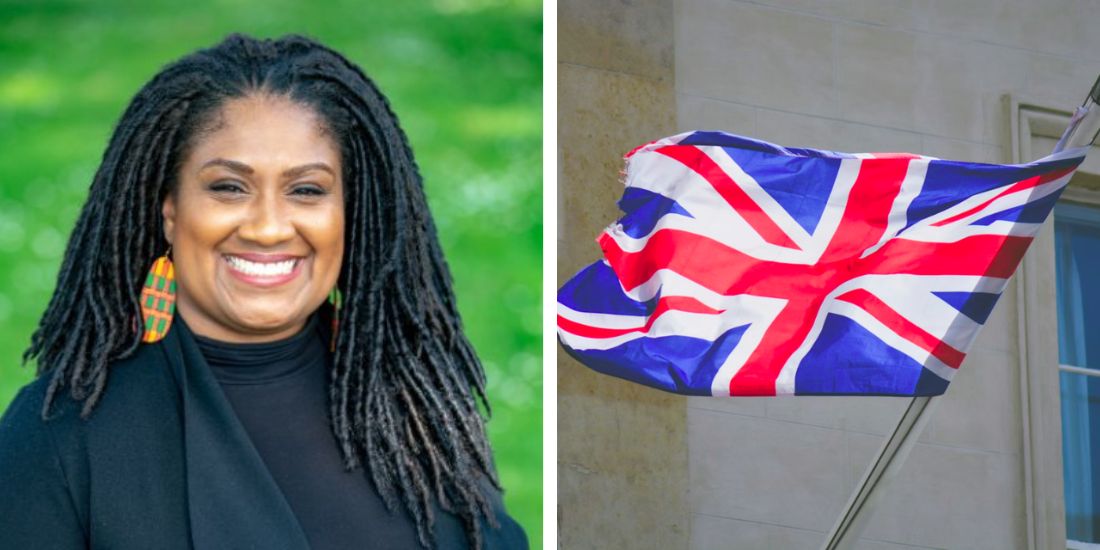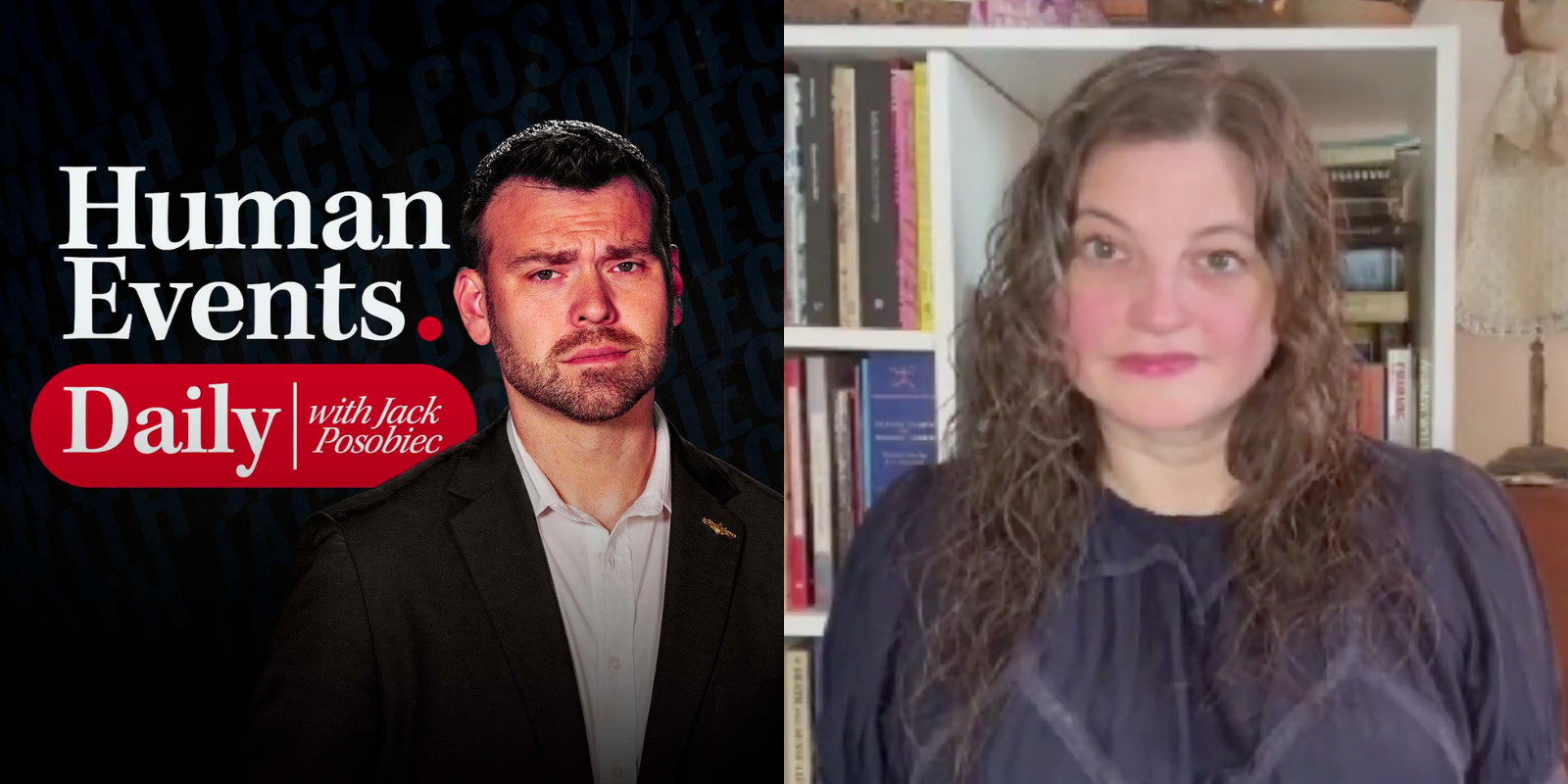The tattered corpses of the Presidential Debates 2020—debates scarcely held; never designed as debates, anyway, but rigged, staged dueling press conferences; “moderated” by biased referees—robbed America of what would have been the most pressing, and most revealing, debate of all: Biden vs. Biden. More than to protect against the virus, more than Uncle Joe being insulated from gaffes, his campaign’s hermit strategy was designed to avoid exposure. Not over-exposure (as with Hillary, four years ago); not even angrily to bark loyal irrelevancies about Hunter Biden to prevent further investigation. Rather, to avoid facing the record and dealing with earlier versions of himself and the fatal aspects of his life.
‘Try, try, try again’ was Biden’s virtual mantra, his campaign theme.
Joseph Robinette Biden, Jr., was touted as a Kennedyesque President-in-waiting by a Delaware newspaper two years before he even first ran for the United States Senate. His first of three presidential campaigns was 32 years ago. Until the South Carolina primary and the benediction—or absolution—of Representative (“Cardinal”) James Clyburn this year, Biden failed to achieve more than “scratch” of primary votes in all those contests. In the 1988 Democrat Convention, he received only .05% of votes. In 2008, his share of Democrat votes in all primaries combined was .22%. This year, the endorsement of that local Congressman, and the rapid disappearance of rival candidates, stoked Biden’s “momentum.”
‘Try, try, try again’ was Biden’s virtual mantra, his campaign theme.
Given the candidate’s lack of enthusiasm and scarce evidence of resilience in 2020, not to mention widespread doubts about his acuity, one might wonder whether his case running for president this time around was an autonomic response or some sort of political rigor mortis. There is no Biden constituency, and never has been. Nevertheless, he became the candidate of a major political party. The last man left standing—barely.
[caption id="attachment_184182" align="aligncenter" width="1920"] Joe Biden speaks at the CFR.[/caption]
Joe Biden speaks at the CFR.[/caption]
THE EMPEROR'S NEW WARDROBE
Without the protective armor of a pliant press corps and desperate politicos (former “Republicans” more nervous than congenital Democrats), Biden properly would have been obliged to play defense on matters related to his own half-century in politics: the multiple cases of plagiarism (one resulting in a college suspension, another forcing him out of the 1988 race); the lies he told about the driver whose collision killed Biden’s first wife and a child; false claims about various academic escapades like scholarships and class ranks; the multitude of informal and formal claims about groping women and girls; stating that he visited Nelson Mandela in prison, which he never did; the allegations of his second wife’s ex-husband that Joe ruined his marriage; Biden bragging about successfully blackmailing the Ukrainian government (“son of a bitch, they got it done”).
“Son of a bitch, they got it done.”
There have been family dynasties in American politics, but Beltway Biden’s variant of keeping things in the family was to embody a centripetal force of potential scandals that never quite gained traction. Prodigal Son Hunter dating his brother’s widow, then cheating on her with a stripper (who had to publicly plead for child support when a DNA test was Biden-positive)? An administrative discharge from the military? Treatment for cocaine addiction? Most significant—and least discussed, maybe now forever—LaptopGate.
Tony Bobulinsky is the latter-day Whittaker Chambers; the laptop is the present-day pumpkin at Cold Friday Farm. But if a scandal breaks in the forest, and there is nobody to report it, does it exist? Joe Biden survived what might be the most explosive episodes of corruption and treason in generations with nary a hair-plug out of place.
A Biden Administration will, of course, forever suppress LaptopGate. But there are even stranger episodes in Joseph Biden’s further past that have been little discussed. A protective media? Possibly—but the reporters have been designing Biden-Camouflage for decades.
THE OBSCURE ORIGINS OF A POLITICAL OBSESSION
In 1970, when Joseph Biden was elected New Castle County, Delaware, councilman, he was the subject of a profile in the local newspaper The News Journal. The writer, Jane Harriman, fawned over the young politician, virtually swooning from the newspaper page, “a great statesman in his youth, Delaware’s JFK, or would you believe, someone they can nominate [for the United States Senate] in 1972?” She described Biden’s “magical charm, his honesty, his brilliance.”
“He’s about to turn 28, and his eyes sparkle blue, and his teeth shine when he smiles, and his cheeks glow, and his body still is boyishly slim.”
“For a young man he is extremely handsome,” the lovestruck interviewer wrote. “He’s about to turn 28, and his eyes sparkle blue, and his teeth shine when he smiles, and his cheeks glow, and his body still is boyishly slim.”
Harriman described a photograph of Biden’s wife on his office wall that “showed most of her… [S]untanned and glorious in a skimpy bikini, posing in front of a red motorcycle.” Biden volunteered that he wanted his wife to stay home to “mold my children... I’m not a ‘keep ’em barefoot and pregnant’ man,” he said, “but I am all for keeping them pregnant until I have a little girl.”
Biden’s pronouncements—once garrulous and frequent, unlike during the recent election campaign—were not social crimes, not in the days before the Political Correctness now a sine qua non of his party. As with his praise of Dixie segregationists like James Eastland and John Stennis, and photos of him embracing the former Exalted Cyclops of the Ku Klux Klan Robert Byrd, old beliefs, old quotations, old friendships—he has never repudiated. Presumably, he does remember them, but, if pressed, he can always fall back on a mind that skips gears at times.
In the News Journal interview, he said,
“I have some friends on the far left, and they can justify to me the murder of a white deaf mute for a nickel by five colored guys. They say the black men had been oppressed and so on. But they can’t justify some Alabama farmers tar and feathering an old colored woman. I suspect the ACLU would leap to defend the five black guys. But no one would go down to help the ‘rednecks’ ... And ‘rednecks’ are usually people with very real concerns, people who lack the skills and education to express themselves quietly and articulately.”
The “most promising young man” (per the caption under The News Journal’s photograph) said he had received angry reactions because he claimed to favor public housing. Using words that are an anathema today, he said he was tagged a “n*gger lover.”
“He is frank about his political ambitions,” Harriman finally closed. “And he says there may be lots of men in town who are as bright as he is, and lots of men who are as good looking, and lots of men who know as much about political science as he does, but there are very few who can beat him on all three.”
Thus endeth the paean “Joe Biden: Hope for Democratic Party in ’72?” From his perch atop the New Castle County Council, Biden almost immediately re-calibrated his ambitions toward the United States Senate. (Whatever else, his naked ambition has been consistent). He was told, and reportedly believed himself, that it was a fool’s errand to challenge the popular Republican two-term incumbent Sen. Cale Boggs, a liberal icon.
James Caleb Boggs was born in 1909; Biden would only turn 30 (the legal minimum age for a Senator) after Election Day. Biden seized on this age discrepancy and built the Senatorial campaign on his youth and old Boggs’ “expiration date,” hiring hundreds of high-school students as Democrat campaign workers and doorbell-ringers. A 2019 article in Slate quoted Norm Lockman, another reporter with the News Journal at the time of the 1970 pre-Senate profile of Biden. Lockman paraphrased Biden’s attacks on Boggs: “Dear old dad may have been right for his time—and I love him—but things are different now.”
Taglines in Biden’s newspaper ads were harsh variations on a theme:
“Cale Boggs’ generation dreamed of conquering polio,” read one ad. “Joe Biden’s generation dreams of conquering heroin.”
“To Cale Boggs, an unfair tax was the 1948 poll tax,” went another. “To Joe Biden, an unfair tax is the 1970 income tax.”
To those near the beaches in downstate Delaware, Biden said that “thirty years ago, caring for the environment meant picking up bottles and beer cans on Rehoboth Beach … and now it means saving the beach.”
In the north, around Wilmington, the pitch was: “in 1950, Cale Boggs promised to keep highways growing; in 1972 Joe Biden promises to keep trees growing.”
In every ad, the message of ‘age, age, age’ was hammered home: “Joe Biden. He understands what’s happening today.”
The harsh and personal attacks enabled Biden to climb over the incumbent Senator’s presumably decrepit corpse on his race to victory.
Almost 50 years later, a June 21, 2019 article in The Atlantic reveals that Biden retroactively discovered another motivation for his first Senate run: civil rights. “‘I’ve been involved with civil rights my whole career—period, period, period.’ His adviser Symone Sanders [asserted] that Biden ‘literally ran for office against an incumbent at 29 because of the civil rights movement.’” There is, however, scant contemporary evidence of such a campaign theme. Crickets, as they say now, related to the issue of race back in the day.
Instead, it was the dominant “age” drumbeat that produced results. The upstart David defeated the iconic Goliath. The avuncular liberal Republican Boggs lost by 3000 votes, a narrow margin even in the small sinecure of Delaware. And, patiently waiting for his 30th birthday, Joe Biden would be seated as the Senate’s fourth-youngest member in history. He was young and, therefore, not “out of touch.”
Another irony is the continual theme of Biden’s subsequent Senate campaigns after he played the Age Card (he also ran in 1978, 1984, 2000, and 2006)—his “Joe Six-Pack” authenticity and attempted blue-collar persona. One of the lies that drove him from the 1988 presidential race was the resume he stole, bizarre and whole cloth, from, of all people, the British Labour leader Neil Kinnock. Biden’s father was not a coal miner (he eventually drifted into selling used cars) and one grain of truth in the frequent retellings of his biography—that is, his own actual contribution—was having been born in Scranton, Pennsylvania; but being moved when he was kindergarten age. The imputed irony is that the “authentic” politician has likely had facelifts, Botox treatments, hair plugs, and capped or false teeth. But in contemporary America, those alterations pass for authenticity.
The math is ironic. In 1972, Joe Biden maintained that “old age” was a disqualification for public service. Boggs was only 63, compared to a President Biden, who would be 78 if inaugurated in January. Yet Biden’s 78th birthday, November 20, stands as greater irony by itself. Biden’s glassy-eyed “gaffes” accelerated during the recent campaign, from once in a while to virtually every speech, to those spontaneous scripted press events and TelePrompTer reads. He began to inspire more pity than enthusiasm. For after almost half a century, there was no Biden-Boy groundswell, no Biden constituency, no growing demand for saviorship.
[caption id="attachment_184181" align="aligncenter" width="1920"] Joe Biden.[/caption]
Joe Biden.[/caption]
SERIAL OBFUSCATION
Biden became a somewhat familiar face to Americans through the decades, thanks in part to the Senate’s custom of seniority. He chaired important committees in high-profile hearings, such as the confirmation of Supreme Court nominees Robert Bork and Clarence Thomas (an inquisition many people remember as the Anita Hill hearings). Biden’s mild skepticism of Hill is something she continues to resent.
"Unless we do something about this, my children are going to grow up in a jungle, the jungle being a racial jungle with tensions having built so high that it is going to explode at some point."
His familiar name is also associated with the Violent Crime Control and Law Enforcement Act and other tough-on-crime legislation. Biden-endorsed provisions included preventive detention, building more prisons, minimum mandatory sentences, “three strikes, you’re out” guidelines, and stricter penalties for street crack versus “glamour” cocaine. Many black Americans and liberals, even years later, characterize Biden’s proposals as “a new Jim Crow.”
Famously, Kamala Harris virtually called Biden a racist in a 2020 primary debate. (The Vice-Presidential candidate evidently overcame her objections). Biden’s pattern began with that 1970 interview, and it’s a pattern that’s inspired black voters’ wariness of Biden’s reliability on racial issues—which may partly explain the marked uptick in black support of Republicans in 2020. He voted “aye,” for instance, on bills that restored citizenship to Jefferson Davis and Robert E Lee. In a Judiciary Committee hearing (July 22, 1977), Biden articulated his opposition to busing legislation: “Unless we do something about this, my children are going to grow up in a jungle, the jungle being a racial jungle with tensions having built so high that it is going to explode at some point. We have got to make some move on this.”
“You ain’t black” was the campaign’s counter-punch to those who question his commitments.
Whether on racial matters, war, or other issues over five decades, Biden maintained through the presidential campaign that his positions defined him as a moderate—an everyman for everybody. His protestations and press releases asserted such— but his long voting record did not affirm it. When Barack Obama chose Biden as a running mate in 2008, the pair scored among the highest liberal records of their peers, as measured by the liberal Americans for Democratic Action. (In 2018, running mate Kamala Harris scored a "perfect" 100%, as far left as any senator.)
During this election, Biden’s words and public appearances were damn few; his manner stumbling and mumbling; and his serial confusions were equal-opportunity embarrassments: dates, facts, locations, statistics. Many voters were spared these dispositive displays, however, because of how frequently the mainstream media devoted zero seconds of coverage to incidents that might have guided their choices, and the way in which Tech Giants censored quotations and videos.
Of course, I cannot render a medical diagnosis, but even the White House physician during the Obama/Biden administration itself, Dr. Ronny Jackson, weighed in—with a discouraging forecast for a lucid Leader of the Free World. There are patterns and signs that should have concerned all Americans, not only Jill and Hunter and Joe’s handlers. The 25th amendment—providing a process for the removal of a president because of incapacity—does not extend to candidates, so time marched on. Now, every Democrat voter and every American citizen should know that the ballots that were marked, or tallied, were as much for Kamala Harris as for Joseph Robinette Biden, Jr. Not merely as a favorite four years hence, because at best Joe could be in hospice by then.
Those skeletons in the closet, those scandals, those weaknesses, those mental-health suspicions were proper and crucial topics for this year’s debates. But they never were asked; neither the press asked, nor did President Trump have the opportunity to ask.
Biden vs. Biden—one of the great missed opportunities in American history.
 The foggy origins, malleable policies, and naked ambition of the certified phony who would be the leader of the free world.
The foggy origins, malleable policies, and naked ambition of the certified phony who would be the leader of the free world.





